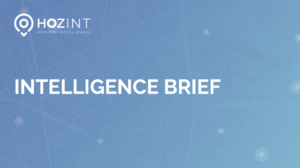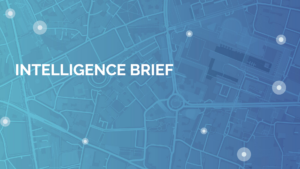On October 11, the populist Shia cleric Muqtada al-Sadr has emerged victorious in Iraq’s 5th election since the US-led invasion in 2003. As the preliminary results have shown, the Sadrist bloc has doubled its share of parliamentary power by obtaining 73 out of 329 seats. On the other hand, the Iranian proxy Al-Fatah Alliance suffered a major setback, losing two-thirds of its 48 representatives. Prominent militia leaders have rejected the initial results, vowing to defend their “candidates and voters with full force”.
Analysis
The results of Iraq’s 2021 election have led to a flurry of unanticipated headlines in which Sadr’s victory was not the only novelty reported. The fast-rising Sunni politician, al-Halbousi won 43 seats, former prime minister al-Maliki 37, and the Kurdish leader Barazani 32. In the loser’s camp, Fatah was joined by the former prime minister al-Abadi and al-Hakim, leader of the Hikma Movement, both of which their parliamentary presence has been considerably marginalised.
Another surprise was the entrance of multiple independent candidates – at least 25 – into the political theatre, promising to voice opposition to Iraq’s patrimonial political order. Thanks to the election’s new legal and technical arrangements, outsiders like the Tishreen movement, a product of the 2019 protests, was allowed to secure its position as an opposition force in Iraqi mainstream politics. Under the new electoral law, Iraq has been split into smaller 83 electoral districts, replacing the prior 18 provinces division.
Reforming the electoral law played to the advantage of independent candidates with limited resources and popular support bases. To avoid replicating the 2018 election experience that was marred with fraudulent practices, biometric registration cards had been introduced by the electoral commission to ensure the integrity of the voting process. Meanwhile, some experts remain skeptical of any significant reshaping of the political scene, insisting that Iraqi politics is fraught with geopolitical risks and domestic obstacles.
While al-Sadr vocally opposes Iranian meddling in Iraqi affairs, he lacks the will and power to push back against Tehran’s growing influence inside the Iraqi state’s institutions. Not to mention that Sadr’s associates have been an integral part of the corruption, nepotism, and sectarianism that have characterised Iraq’s political life since 2003. Similarly, all the other major winners are inherently focused on advancing local agendas, then regardless of their backgrounds, politicians’ legitimacy is mostly built on narrow ethno-sectarian interests. This political culture reduces the chances of developing a nationwide perspective.
Forecast
Undoubtedly, al-Sadr will have the larger say in naming the upcoming prime minister. But lacking the 165 MPs required for forming a government, Sadr is expected to negotiate coalition-building possibilities with the other Kurdish, Sunni, and Shia factions. Halbousi and Barzani are both potential allies, who on multiple occasions have expressed interest in joining a coalition with the Sadrist bloc. Sadr also realises that dismissing pro-Iran Shia groups out of the ruling class is not a realistic option given their military capabilities – over 80,000 fighters.
Unlike traditional political organisations, Fatah and its allies manage transnational networks of banks, charities, media outlets and loyal militants whose influence over the years has been entrenched in the Iraqi state’s structure. Although secular newcomers appeared to have gained momentum, they are far from being capable of enacting qualitative changes. Considering the current security concerns, independent MPs who are too critical of the establishment will be co-opted and intimidated to minimise the impact of potential opposition. Therefore, Iraq is likely to remain captive to its post-2003 consociationalist governance system. Instead of being inspired by a unified Iraqi vision, policies will continue to be mainly driven by local interests and geo-sectarian rivalries which supersede the imperatives of Iraqi nationalism.
By Adam Issa, Risk Intelligence Analyst at Hozint – Horizon Intelligence.



